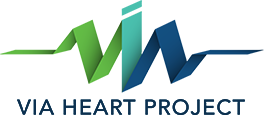And the winner is….
We received two wonderful video submissions from organizations hoping to win our free AED Giveaway Contest for February:
SPCA of Monterey County:
Saving Hearts Foundation (UCLA Chapter)
When it came time to vote on a winner, our board did what boards do: each member advocated passionately for the video they thought should win, they drew straws, there may have been some thumb wrestling. After all the votes were tallied, Saving Hearts Foundation (UCLA chapter) was determined the winner!
BUT WAIT…
Thanks to a generous donation from Tyler Heart Institute, the SPCA is also being awarded a free AED! Located in Monterey, Tyler Heart Institute offers a wide range of cardiac services. They treat individuals but clearly have a soft spot for animals, too. Tyler wanted to see the folks at the SPCA of Monterey awarded a defibrillator at their office location as thanks for their dedication to animal rescue.
We want to sincerely thank the Tyler Heart Institute for their additional donation and extend hearty congratulations to the two entrants. Both walked away with a free AED! For this month’s AED giveaway, we’re asking folks to submit a photo telling us why they want a free defibrillator. Props, signs, and graphics are encouraged. The caption should also tell us where they will place the AED if they win.
We can’t wait to see your submissions!



